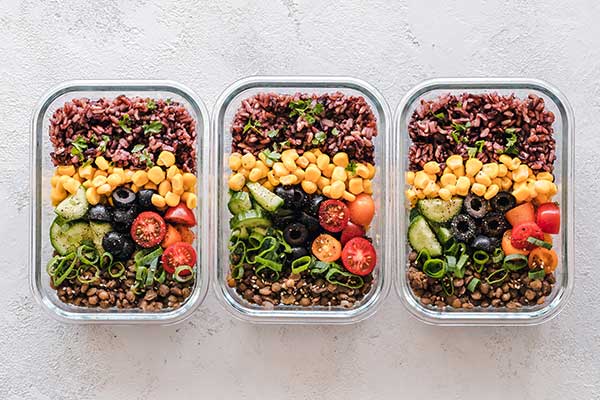Veganism is a fashionable dietary lifestyle these days and for a good reason. When you’re a vegan, you don’t use any animal material or their by-products. They don’t eat any meat, seafood, eggs, dairy, or honey. Their diet is sourced from plant-based items.
Thank you for reading this post, don't forget to subscribe!Most people only think about food, but strict vegans don’t use leather, buy cosmetics or use skincare products that have been tested on animals, or support businesses who endanger living creatures in some way.
People choose to become vegan for health, environmental, or animal rights reasons. It’s been proven that vegans have lower body masses on average than those who eat animal products.

The most significant emissions of CO2, which is reasonable for climate change and global warming, is from the beef and cattle industry. Animals, such as chicken, cows, and pigs, are being factory farmed. This means they’re packed in cages, feed genetically modified foods to grow larger more quickly, and sometimes never see daylight.
These are the main reasons someone might become vegan, but everyone has their own story. If these things bother you and you’re thinking about adopting this lifestyle, there are some things you need to know. We’re going to go over our tips to being a successful vegan.
Consider Supplements
Fruits, vegetables, whole grains, and nuts are loaded with essential vitamins and minerals. One of the reasons vegans are usually trimmer is the large amount of fiber consumed on this diet. Also, plants aren’t naturally calorie-dense, so you can eat a lot more of them without going over your daily intake.
However, two leading supplements are difficult to find naturally in plants, B12, and iron. B12 is only found in animal products, and iron is in dark greens, seeds, and legumes, but not as substantially as in red meat, chicken liver, and oysters.
B12 is essential because it keeps the blood cells and nerves working properly. If you don’t get enough, you can become weak, fatigued, experience weight loss, nerve problems, and mental health issues.
You need iron in your diet because it helps make up hemoglobin, which is vital for red blood cell function and carrying oxygen through your body. When you don’t get enough, you become anemic. Symptoms of this are shortness of breath, brittle hair and nails, cold hands and feet, and difficulty swallowing.
Taking a supplement that meets the daily requirement for B12 and iron will ensure you’re staying healthy while on a vegan diet. There are many vegan vitamins you can take, just look on the package for the sign.
Find a Quality Protein Source
Protein helps us grow, repairs our cells, and provides amino acids to our body. Plant protein is out there, and it’s delicious. It has the same power to create strong muscles and perform physically.
Like Venus Williams, Colin Kaepernick, and Jermain Defoe, some of the best professional athletes are vegan. Great sources of plant-based protein come from beans, lentils, nuts, quinoa, and soy.
Be Mindful of Junk Foods
Just because it says, “vegan” doesn’t mean it’s automatically healthy. You can live a vegan lifestyle by eating processed white bread, fries, pasta, chips, desserts, and packaged foods. It’s perfectly normal to want to indulge sometimes, but keep these things minimal.
An unhealthy vegan can experience weight gain, hunger, lack of essential vitamins and minerals, and protein deficiency. Remember, whatever you put into your body, is what comes out.
Instead, fill up on vegetables, fruits, and whole-grain during the day. Then, have a small cheat meal at night or on the weekends. You’ll feel better and be healthier.
You’ll Have to Explain Yourself A Lot
The western diet is filled with meats and cheese as the focal point of the meal. Those who don’t fully understand a vegan diet will be confused about your choice and probably have a lot of questions.
You should have prepared your reasonings for becoming a vegan and ask others to respect your decision. Some people might make jokes about it or even appear impolite. You only have control of your actions, and what you put in your body is your choice. Keep in mind your goals, and try to educate those who don’t understand.
Vegans usually get a bad reputation because they’re often “in your face” about their dietary choices. Don’t be that person. If people ask you questions and want to know more, you can inform them. However, don’t make every meal a time for you to lecture those who aren’t vegan.
Read all Food Labels
There are some things that you’d just assume are vegan, but aren’t. For example, gelatin, some alcohol, white sugar, a few juices, and refried beans aren’t vegan.
Gelatin surprisingly is in a lot of packaged foods we eat. The most common are marshmallows, gummies, Jell-o, some vitamins, the cereal Mini-Wheats, and Pop-tarts.
For the first time vegan, this is a lot to know. Reading the labels is so important to know whether something is vegan or not. Look for packages that clearly state vegan.
If you make a mistake and accidentally eat something that uses animal products, it’s okay. You don’t have to quit or feel bad; everyone’s done it before. Take it as a learning experience and keep moving forward.
The Bottom Line
Adopting a vegan diet is an excellent way to feel healthier, help fight climate change and respect animals. Your small contribution over years of dedication will make a difference. You may inspire others to live this way as well.
When you’re becoming a vegan, there are some things to keep in mind. Take a supplement of B12 and iron, find a protein source, think about how much junk food you eat, be prepared to explain yourself, and always read food labels. Happy Eating!



